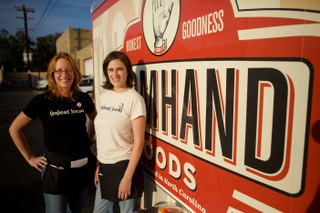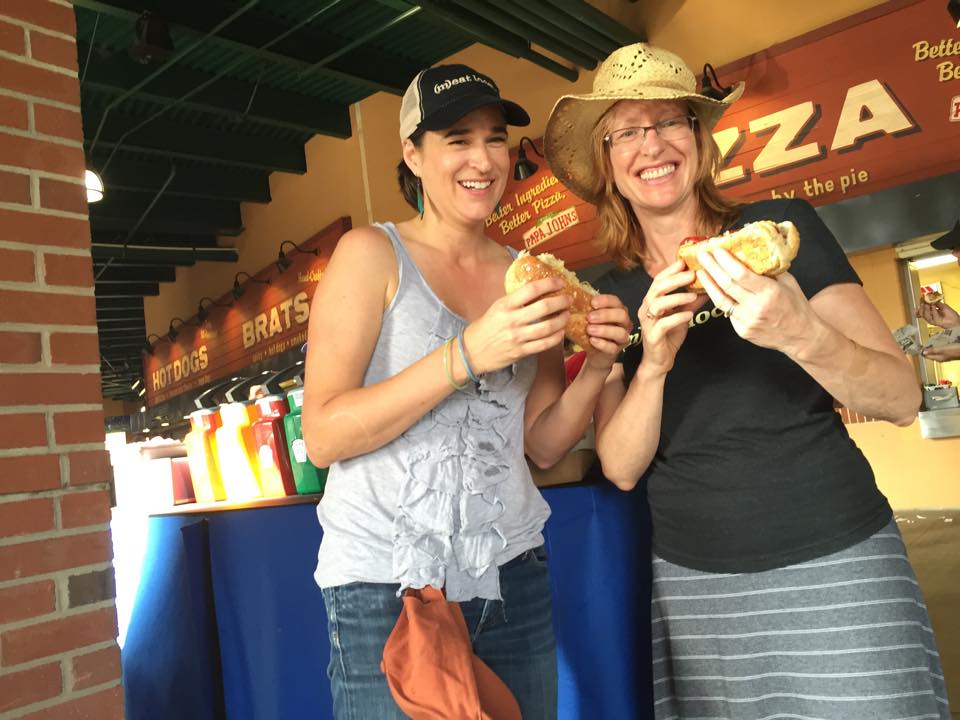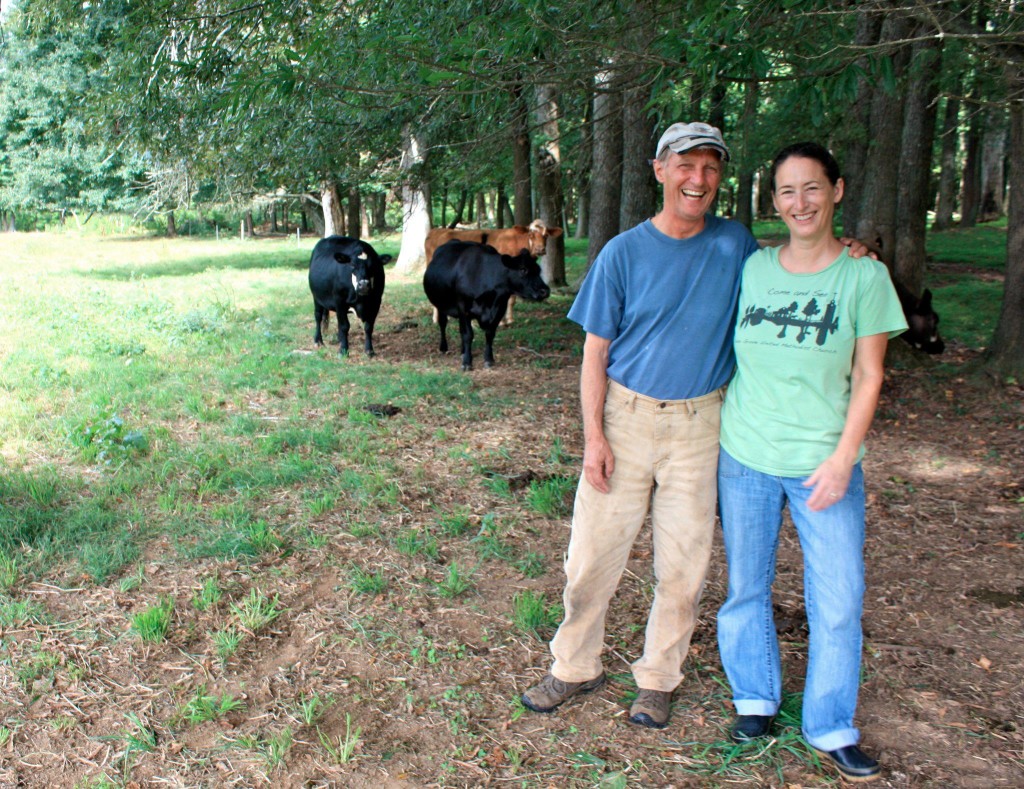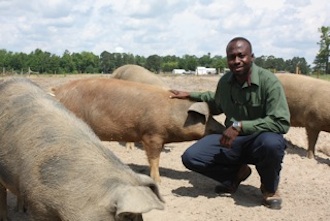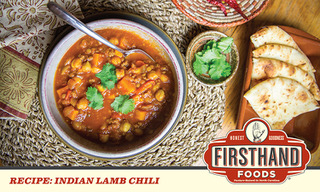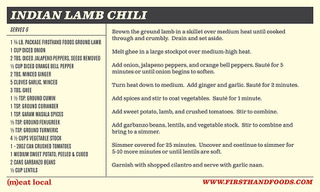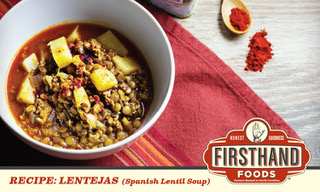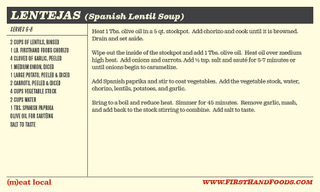How two women, passionate about feeding their families humanely-raised meats, are connecting NC’s pasture-based livestock producers with local food lovers, restaurants, and retailers.
by Jennifer Curtis, Firsthand Foods
Jennifer Curtis (right) and Tina Prevatte (left), the founders of Firsthand Foods
Hi! We’re the owners of Firsthand Foods, a women-owned Durham-based meat business specializing in local, pasture-raised beef, lamb and pork.
We run a mission-driven business that was built to help North Carolina’s pasture-based livestock producers thrive. In a world where commerce is dominated by global supply chain arrangements, small-scale producers are often denied access to market opportunities. Our aim is to change that by building out a robust market for locally sourced, humanely-raised meats while keeping our core values of transparency, equity and community at the forefront.
We first connected as business owners around a shared passion for using business as a tool for generating social and environmental good. We’re also moms, whose kids love to eat meat. When we met eight years ago, we were disheartened by the lack of local, sustainably-produced proteins available where we like to eat and shop. So we rallied around that problem and today you can find our meats at numerous area restaurants and natural foods grocery stores in the Triangle and Triad, as well as being offered by multiple home delivery services.

The biggest hurdle for livestock producers who want to sell their meats locally is what we like to call the “whole animal utilization” challenge. A good way to lose money fast in the meat business is to slaughter an entire beef animal for the ribeyes and have no market for the ground beef. So we buy whole animals from producers so they don’t have to worry about finding a home for all the parts. The 65 producers in our network get to focus on what they do best – raising animals humanely outdoors on pasture without growth-promoting antibiotics or added hormones.
While sustainable production practices are essential, meat quality and consistency are equally important. It doesn’t do much good to raise an animal with utmost care if the end result isn’t pleasing to the customer. Producers make decisions every day that ultimately impact meat quality – forage management, sire selection and breeding, nutrition and feeding considerations. But in the conventional meat industry, producers rarely if ever get feedback on how their management practices influence meat quality. Their animals are shipped off to feedlots or massive slaughter facilities and never discerned from the countless other animals moving through those systems. That’s why we work closely with our producers to provide feedback on size, marbling, color, and other qualities that result in a great eating experience. We want to build their capacity as producers while we build market opportunity for their products.
The 65 producers in our network get to focus on what they do best – raising animals humanely outdoors on pasture without growth-promoting antibiotics or added hormones.
To work with Firsthand Foods, farmers drop their animals off at one of three cooperating USDA-inspected, Animal Welfare Approved small-scale meat slaughter plants. These family-owned businesses based in rural counties are key partners for us. They do the hard, and often under-appreciated, work of slaughter and meat fabrication. They create the meat cuts and value-added products that our customers desire. We currently purchase 8 beef, 18 hogs and 4 lambs per week and sell most of our meats fresh to restaurants, retailers, and food service accounts. It takes about 80 different wholesale customers on a weekly basis to utilize all the parts of these animals.
Geoff and Jane Glendhill of Cedar Grove Windy Hill Farm raise beef for Firsthand Foods. Photo from Firsthand Foods’ Facebook page.
CFSA is on a mission to bring local, organic food to your table from a farmer who shares your values. Join us!
A few highlights from the Triangle:
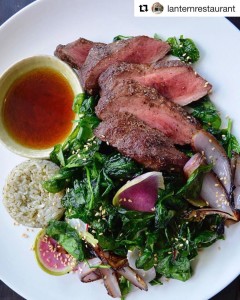
Steak from Firsthand Food Farmers at Lantern Restaurant in Chapel Hill. From Firsthand Food’s Facebook page
- Pork neck bones and feet are the basis for ramen broth at Dashi,
- Beef shoulder goes into burgers at Bull City Burger and Brewery,
- Top round becomes roast beef at Lucky’s Deli,
- Lamb’s necks become a braised dish at Garland Restaurant,
- Pig ears are featured at Pizzeria Toro,
- Ribeyes are dry-aged at The Durham Hotel, and
- Beef cheeks find a home at The Eddy.
And of course, without our retail partners, we’d be hard-pressed to sell all of our sausages, ground beef and ground lamb. Indeed, on the average, about 60 percent of an animal ends up as a ground product!
Our Evolving Ethic – Eat Less, Pay More
Our goal as business owners is to help build a supply chain for local meat that creates healthy delicious products, compensates everyone fairly, takes care of the planet, and reinvests in our community.
Gerald Miller from H&H Farm Photo from Firsthand Food’s website.
One of the challenges to growing the market for local, pasture-raised meats is that the cost to the consumer is often twice that of confinement-raised meat products. Compared to indoor houses and crowded feedlots, local pasture-raised production is less efficient, takes more time and is best managed on a smaller scale. But its these more responsible production systems that a growing number of consumers are demanding – humane conditions for animals, a fair price to the farmer, eliminating routine use of antibiotics and added hormones, building soil quality and protecting natural resources.
In the past six years, Firsthand Foods has directed over $5.2 million in to our local food system.
In our journey into the local meat industry, we’ve gravitated toward an “Eat Less, Pay More” ethic. It’s a cultural shift toward eating less meat overall so that we can afford “the good stuff.” If we all eat less meat, we reduce the demand for mass-production. And if we accept a higher per pound price for what we do purchase, we can pay farmers fairly for the work involved in raising animals humanely. We’re proud to report that a full 75 percent of the revenues we generate every year go back to the farmers and family-run meat processors in our supply chain. In the past six years, Firsthand Foods has directed over $5.2 million into our local food system.
One way to make the “eat less, pay more” philosophy a practical reality is to consider using pasture-raised meats as flavor-enhancing ingredients rather than center-of-the-plate features. We’re in the process of developing recipe cards (see two below; also available in cooperating retailers and on our website) that feature our products as accompaniments, alongside hearty portions of beans and vegetables. A favorite is Lentejas, a Spanish lentil soup that features our chorizo sausage. And a recent addition to our collection is an Indian chili that features garbanzo beans and ground lamb. Of course, there will always be special occasions worthy of splurging on your favorite steak or roast but week-to-week, it makes sense for meat to play a smaller role.
We invite you to try our pasture-raised meats and “eat less, pay more” philosophy. We’ve noticed that it has moved us in alignment with our core values. Eating less and paying more makes it easier for us to honor the hard work and sacrifice involved all along the supply chain – the land, the animal, the farmer, the processor, the distributor, the restaurant, and the grocery store all make it possible for us to enjoy good local meats.
Less is More Recipes


